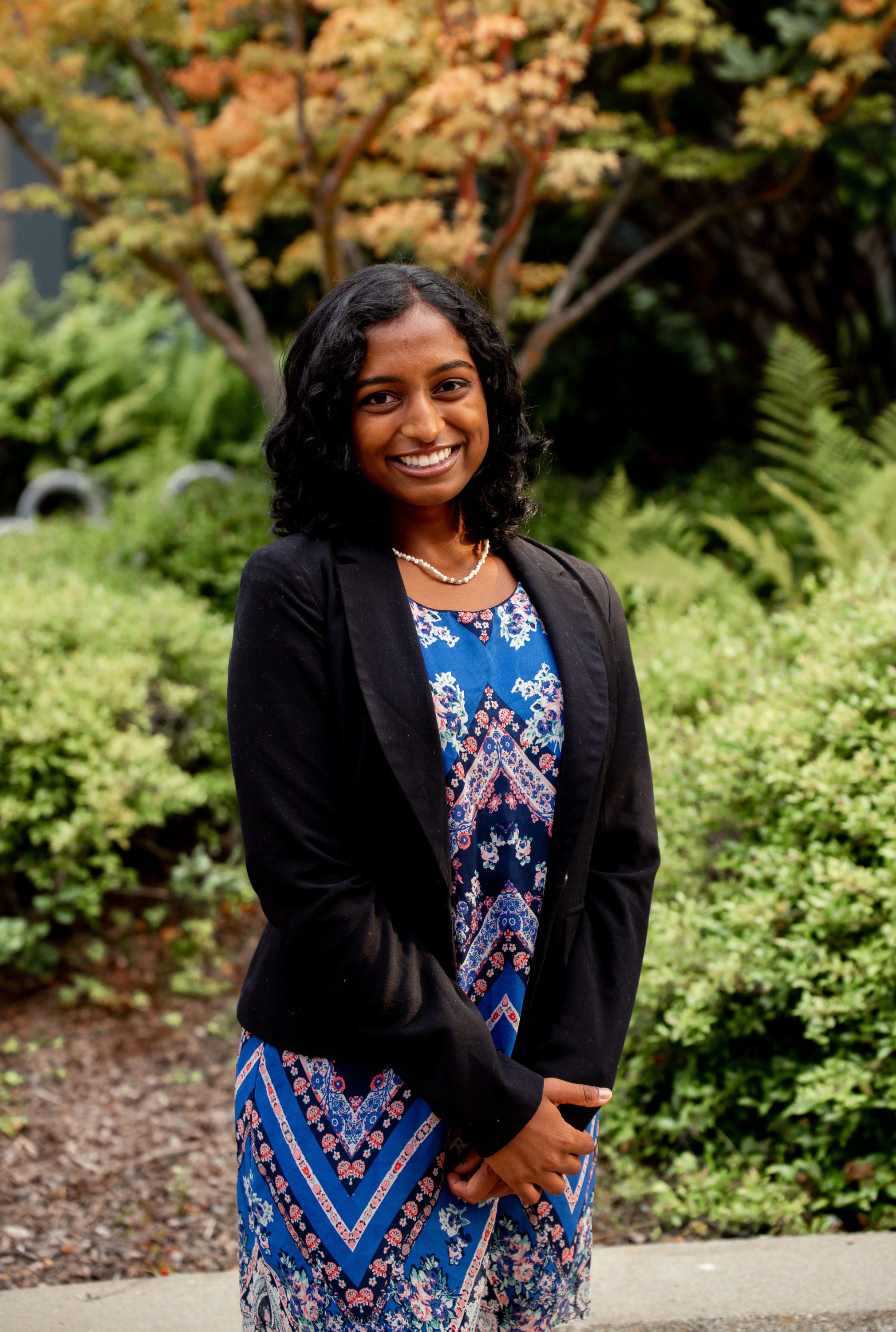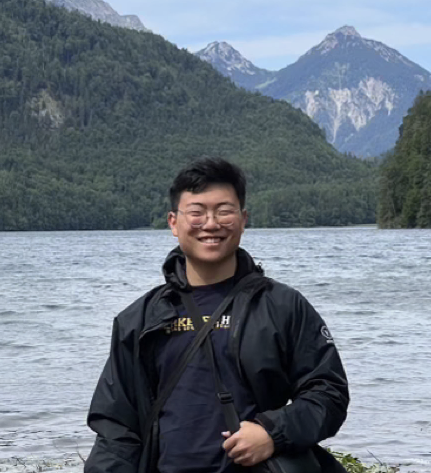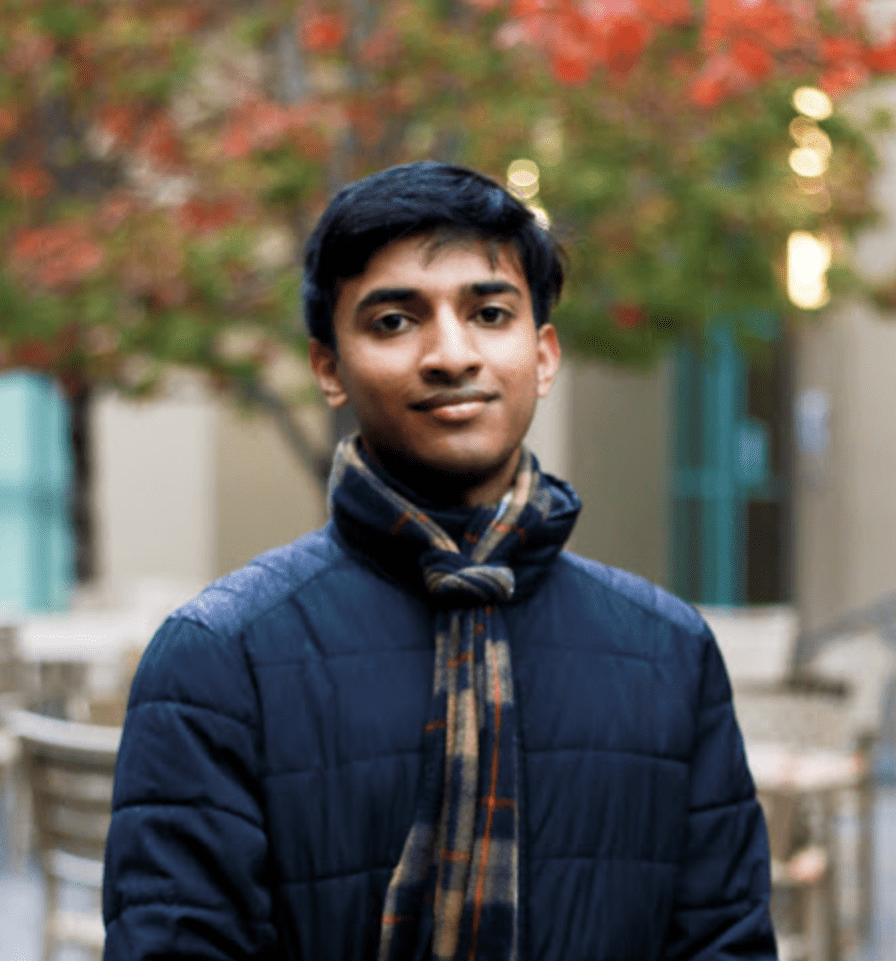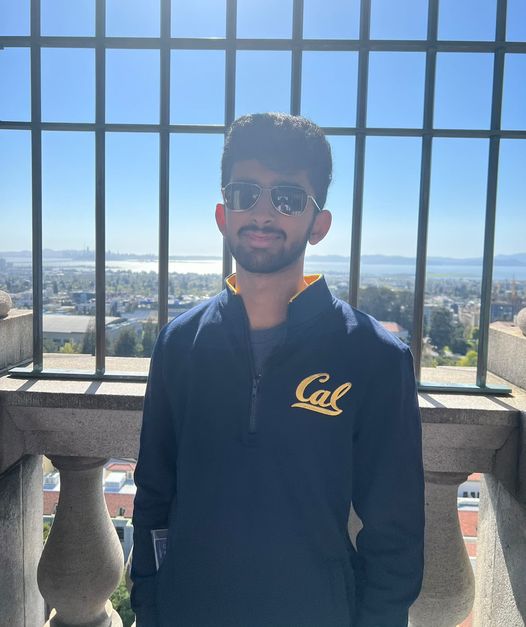Humans of Haas: Sravya Basvapatri
Sravya Basvapatri is a current junior in Berkeley’s Management Entrepreneurship & Technology Program (M.E.T.). She is studying Electrical Engineering & Computer Science (EECS) + Business with a minor in Bioengineering and pursuing a Berkeley Certificate of Design Innovation. On campus, she serves as the President of the M.E.T. Student Board, the Co-Head Lab TA for EECS 16B, a Golden Bear Orientation Leader (OL), and held several roles in the Voyager Consulting group. Having interned for Salesforce in their Associate Product Manager (APM) program this past summer, she is looking forward to joining Salesforce’s as a full time APM after graduation.

What gets you out of bed every morning?
I think it’s really fundamental to come back to what drives you. For me, I’ve been really curious about understanding how we take in the environment around us, primarily visually, through different mediums. This question led me to explore varied interests, from photography and art to medical imaging which creates visuals from a world we can’t even see (inside our bodies).
Why did you choose to study EECS, Business, and Bioengineering?
Throughout high school I was involved in entrepreneurial extracurriculars. I aim to start my own company someday, and I also believe that I need a core engineering background to bring a product vision to life. I started off as Mechanical engineering + Business. Then, I examined the upper division courses (which I’d highly recommend doing) and found that Electrical Engineering & Computer Science (EECS) would be a better fit for me. For me, design is the perfect blend of technical skills and creativity to engage people, and allows me to apply what I learned in my technical classes in a playful way.
What do you think are essential skills for business?
Creativity. One of my favorite classes is Creativity Lab with Prof Clark Kellogg & Mariana Somma, which is about the idea of “play”. As we mature into college students and soon professionals, we often don’t have time to slow down & do things for fun, and rekindling that playfulness was what this class was all about. So, sometimes my peers would bring in dishes they cooked, or music they mixed, or digital art they tried for the first time. Personally, I love to go on runs for a little bit of adventure during which I’d pick up natural elements like acorns or sea glass & make murals out of them. I learned the importance of channeling a state of openness to creativity’s strike, and really slowing down to observe things around me, which I believe is critical to needfinding & ideation as an entrepreneur and innovator. Also, I think among all the different models out there, imitating business strategies can be very common. But the truth is there is no one right way to do business (as is with most problem-solving). You have to bring in the creative element when you consider the structure of a company and its teams’ management style, and flesh out business strategy from there.
I also realized how important it is to stay focused on what you’re interested in. By the time I was an upperclassman, I learned to take the classes I wanted to (like Creativity Lab) even if others deemed certain classes too difficult (like my math heavy medical imaging course). A great question to ask friends is which classes they’ve taken have had great synergy together, where one class’s content feeds into anothers? So in addition to creativity, confident focus and synergistic efficiency are especially useful in business.
How do you apply what you learn in class to your life?
I believe the best way to practice applying the theory from the classroom is in the innumerable smaller decisions in our lives. Being able to work through case studies and analyze companies from financial, marketing, and sales lenses in my Haas classes has been really valuable. My freshman summer, I was interning as a technical consultant in fintech, and I didn’t understand every financial framework that came my way, until I took a related Haas class later on. ISo it’s really important to cement the theory you learn in classes with internships and/or extracurricular experience. Studying business in addition to engineering really allows me to understand the value of a project or product with more intuition. That consulting internship also taught me to dive into experiences even if I don’t feel 100% ready as long as I see the value and potential to grasp the knowledge I’m deep diving into.
Even if I’m not working in industry during the school year, I actively apply business skills to my consulting project: I try to better understand why people joined my team & intrinsically motivate them. Course staff for EECS 16B runs like a mini company where I’m practicing balancing interests of staff & and providing the best teaching experience.
What has been your most important extracurricular in college?
Golden Bear Orientation (GBO) in which we introduce new students to campus. Finding communities on campus where you can reach out to students who’ve followed paths that you are interested in is so important. Mentorship is fundamental in every field, including business, but more than networking, it’s about a sense of connection. I love being an OL because it gives me a chance to be that first community for students, and help them feel that they belong at Cal.
What advice would you give to your past self?
It’s easy to be intimidated or feel that you’re behind at Cal. But you do belong; there is a place for you here; we’re all just figuring it out, but importantly, we can figure it out together.


